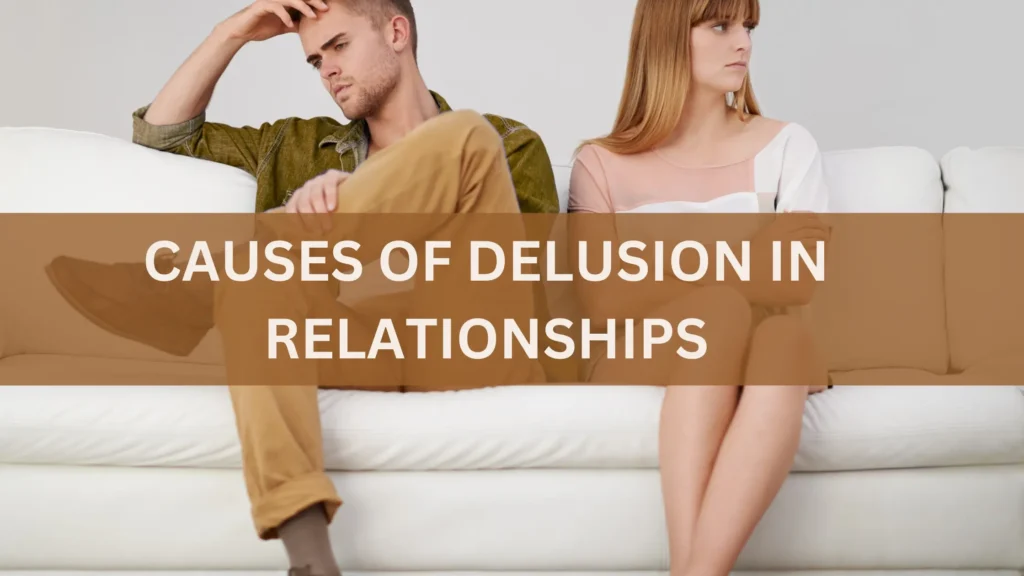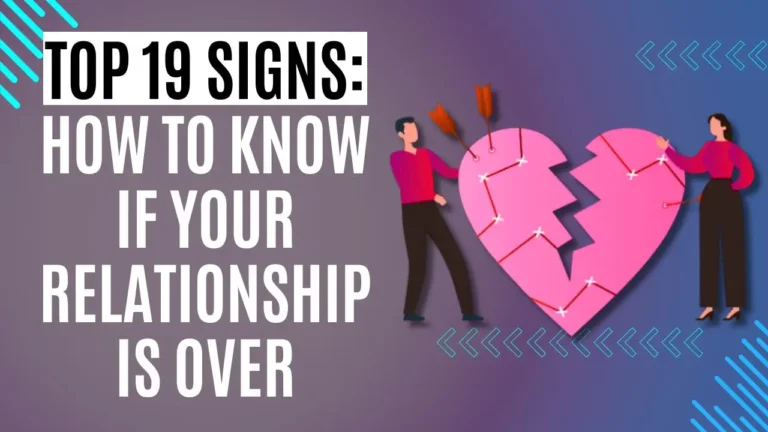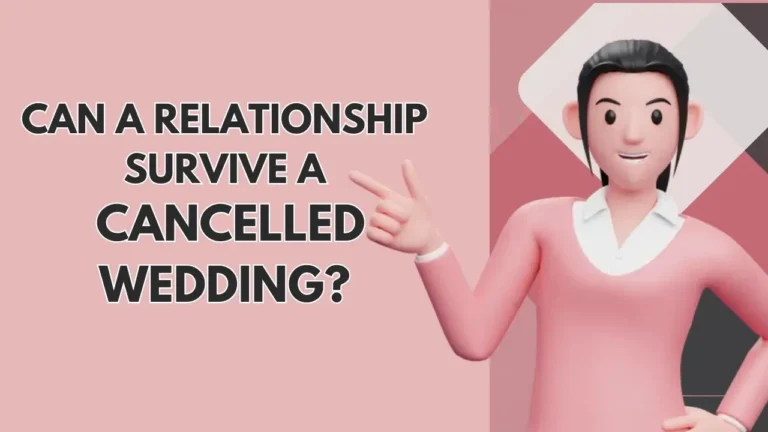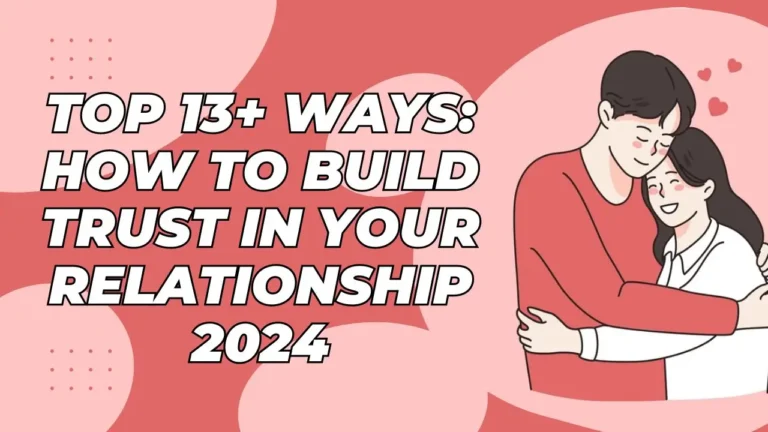What does delusional mean in a relationship? Signs, Causes & How to Deal with It?

What does delusional mean in a relationship? In general terms, delusion refers to a false belief that persists despite evidence to the contrary. It can affect anyone, regardless of their age, gender, or background. In romantic relationships, delusion can manifest when one or both partners have unrealistic expectations or perceptions of each other or the relationship.
It’s important to note that a delusional relationship differs from a healthy relationship, as it’s based on fantasies rather than reality. Such relationships can lead to emotional manipulation, control, anxiety, depression, and difficulty recognizing true love. This article aims to explore the signs, causes, and effects of a delusional relationship, as well as provide guidance on how to deal with it.
Understanding Delusional Disorders in Relationships
If you or your partner are experiencing delusional disorders, it can be a challenging situation to navigate. You may feel frustrated, confused, or helpless as you try to understand and address the fixed beliefs that are not based on reality. It is important to approach the situation with patience, empathy, and a willingness to seek professional help.
Don’t forget to learn about Can A Relationship Survive A Cancelled Wedding?
By working together and seeking therapy and education on delusional disorders, you and your partner can build a stronger and healthier relationship based on trust and understanding. Remember to communicate openly and honestly, set boundaries, and seek support for yourself as well. With time and effort, you can overcome these challenges and build a happier, healthier future together.
A delusional disorder, a personality disorder, or a psychotic disorder do not necessarily cause a delusional relationship. A person may have delusional thinking in their relationship without having a mental health diagnosis. However, if a person’s delusions are persistent, severe, or interfere with their well-being, they may benefit from seeking professional help.
Signs of a Delusional Relationship
How can you tell if you are in a delusional relationship? Here are some common signs that may indicate that you or your partner are not seeing the relationship clearly:
Idealization
One sign of a delusional relationship is idealization. This occurs when you overlook your partner’s flaws and red flags, believing that they are perfect or the best thing ever. You may think that they will magically change or that you can fix them with love. This causes you to disregard problems and focus only on the positives, comparing them to unrealistic standards such as movie stars or past lovers.
You can also read more about A True Relationship Is Two Imperfect People Refusi – Tymoff
Idealization can make you feel euphoric or obsessed with your partner, but it can also blind you to the reality of the relationship. This can set you up for disappointment and lead to neglect of your own needs and interests.
Constant Excuses
Constantly making excuses for your partner’s bad behavior or broken promises is another sign of a delusional relationship. You might tend to rationalize, justify, or minimize their actions and blame yourself, others, or external factors for their mistakes. It’s common to ignore evidence that contradicts your idealized version of your partner and avoid confrontation or feedback from others.
However, this behavior enables your partner to continue without taking responsibility, which could damage your self-esteem and trust. It’s crucial to recognize these patterns and address them for the sake of your well-being and the health of the relationship.

Jealousy and Possessiveness
One of the signs of a delusional relationship is jealousy and possessiveness. This often manifests in unfounded accusations of infidelity and a desire for control. It can lead to checking your partner’s communication and limiting their interactions, which can isolate both of you from support networks.
You can also read more about Can Tarot Cards Ruin Relationships?
These behaviors breed insecurity and anger and can create a toxic environment that erodes trust and intimacy. Building trust and fostering open communication are essential to overcoming these challenges and building a healthier relationship foundation.
Living in a Fantasy World
Living in a fantasy world and making unrealistic plans without taking action or addressing incompatibilities can be a sign of a delusional relationship. Such behavior can create false hope and prevent growth and may maintain a facade of romance while avoiding reality.
This can hinder personal development and problem-solving within the relationship. It’s important to confront reality, discuss differences openly, and work together to build a shared vision grounded in practicality and mutual understanding.
You can also read more about How To Be Mature In A Long-Distance Relationship?
Isolation from Friends and Family
Isolation from friends and family is often seen in delusional relationships, either due to your partner’s control or self-imposed. This isolation can lead to emotional detachment and dependence and make you more vulnerable to manipulation. You lose out on essential social support and perspective necessary for a healthy relationship.
To break this cycle, it is recommended to reconnect with loved ones and seek outside support. Doing so can help restore balance and perspective to the relationship dynamic.
Causes of Delusion in Relationships
What causes delusion in relationships? There is no definitive answer, as different factors may contribute to other cases. However, some possible causes are:
Fear of Loneliness
It’s common to suffer from relationship delusion if you fear being lonely. You might cling to a relationship for security, comfort, or validation, even if it’s unhealthy or unsatisfying. This fear of being alone or rejected can lead you to settle for less than you deserve.
Furthermore, if you have a codependent personality, it may be hard for you to recognize or break free from a delusional relationship. You might feel incomplete without a partner, which makes it even more challenging to leave.
Don’t forget to learn more about How To Know If Your Relationship Is Over?
Low Self-Esteem
Low self-esteem is a contributing factor to relationship delusion. When you have a negative self-image, you may believe that you don’t deserve better treatment or a healthier relationship. Seeking validation from your partner or others can reinforce these beliefs and keep you trapped in this cycle.
Negative self-talk can make you vulnerable to accepting or pursuing delusional relationships, where you feel undeserving and allow your partner to take advantage.
Attachment Issues
Attachment issues that result from early childhood experiences have the potential to create relationship delusion. Your attachment style, whether it’s secure, anxious, avoidant, or fearful, plays a role in how you interact with your partner.
An anxious attachment style might make you crave closeness while fearing rejection, whereas an avoidant style might value independence but fear intimacy. These attachment patterns can lead you to idealize or devalue your partner, which can contribute to a delusional relationship dynamic.

Past Relationship Trauma
Experiencing abuse, betrayal, or abandonment in past relationships can have a deep impact on your current relationships. Such trauma may lead to low self-esteem, trust issues, or even symptoms of PTSD.
This trauma can make you more susceptible to repeating unhealthy relationship patterns, such as attracting abusive partners or becoming overly suspicious of your current partner. Grieving past losses or seeking therapy can help you address these lingering effects and prevent them from negatively influencing current relationships.
Effects of a Delusional Relationship
A delusional relationship can have significant and far-reaching negative consequences for both you and your partner, including:
Emotional Manipulation and Control
When you’re in a delusional relationship, your partner might manipulate and control you by using your emotions against you. This involves them trying to make you do what they want by making you feel guilty, lying to you, making you doubt your memories or reality, shaming you, blaming you, or threatening you.
Sometimes, they might try to bribe or threaten you to manipulate you. They might also try to cut you off from your friends and family so that you start to depend on them more than anyone else.
Emotional manipulation and control can be confusing and scary and can affect your mental health and self-esteem. It can also make you feel like you have no power in the relationship.
Anxiety and Depression
Delusional relationships can have serious consequences, including the development and worsening of anxiety and depression. These mental health conditions are often characterized by persistent feelings of worry, sadness, and hopelessness, along with physical symptoms like insomnia, fatigue, and headaches.
The chronic stress and emotional turmoil that come with a delusional relationship can significantly affect your day-to-day functioning, disrupting work and social interactions and increasing the likelihood of other mental health challenges, such as substance abuse or suicidal thoughts.
Don’t forget to learn more about How To Deal With Insecurity In A Relationship?
Difficulty Maintaining Healthy Boundaries
Maintaining healthy boundaries can become a challenge in a relationship where one or both partners hold delusional beliefs. It may be difficult for you to define clear limits, express your own needs and desires, or even respect your partner’s boundaries.
This struggle can lead to negative feelings such as resentment, frustration, and ongoing conflict within the relationship. Ultimately, a lack of healthy boundaries may cause you to neglect your well-being and sense of self as you become increasingly enmeshed in the relationship dynamics.
Difficulty Recognizing True Love
Delusional relationships often lead to a distorted perception of what true love and healthy relationship dynamics look like. In such relationships, you may mistakenly believe that love is equivalent to obsession, sacrifice, or control, which can result in unrealistic expectations and destructive behaviors.
As a result, you may find it challenging to distinguish and cultivate genuine, reciprocal connections with partners who genuinely respect and support you. This confusion and misunderstanding of love can prevent you from forming meaningful relationships and perpetuate cycles of dissatisfaction and disappointment.
Don’t forget to learn more about Is Being Delusional A Form Of Manifestation?
How to Deal with a Delusional Relationship?
How can you deal with a delusional relationship? There is no easy or quick solution, as different situations may require different approaches. However, some possible steps are:
Self-Awareness
The first step in dealing with a delusional relationship is to become self-aware. This involves recognizing the signs of delusion within yourself and acknowledging that you are not seeing the relationship clearly. It may also include examining your reasons for staying in the relationship and identifying the underlying causes of your delusion.
Reflecting on how the relationship is affecting you and whether it is worth continuing can help you gain clarity, insight, and perspective. Self-awareness can help you take responsibility for your happiness and make informed and rational decisions. It can also help you break free from the cycle of delusion and seek help or support if needed.
Honest Communication
When you are dealing with a relationship that involves delusions, it is important to have open and honest communication with your partner. Express your feelings and expectations while also encouraging your partner to do the same. Actively listen to their feedback and work together to resolve any conflicts that arise constructively.
Don’t forget to learn more about What Are The Stages Of Delusion?
Honesty in communication is key to establishing trust, respect, and intimacy in your relationship, and it can also help you determine if your partner is willing to make changes.
Professional Help
The third step to dealing with a delusional relationship is to seek professional help. A qualified mental health professional, such as a therapist or psychologist, can guide and advise you.
They may offer individual or couples therapy, medication, support groups, or other resources. Professional help can help you cope with your emotions, address the underlying causes of your delusion, and develop healthy coping skills.
Don’t forget to learn more about Understanding Delusion And Blunder 4umi
Setting Boundaries
The fourth step to dealing with a delusional relationship is to set boundaries. This means prioritizing your well-being and needs and asserting them in the relationship. You may need to limit or end contact with your partner if they are abusive, toxic, or harmful. You should distance yourself from the relationship and focus on your own life, goals, and interests.
Final Words about What does delusional mean in a relationship?
In conclusion, a delusional relationship arises from having unrealistic expectations and perceptions, which results in emotional manipulation, anxiety, and difficulty in identifying genuine love. It is essential to recognize signs such as idealization, excuses, jealousy, fantasy, and isolation.
Seeking therapy and education on delusional disorders can aid in developing a healthier relationship. Communication, setting boundaries, and self-support are crucial for growth and understanding.






